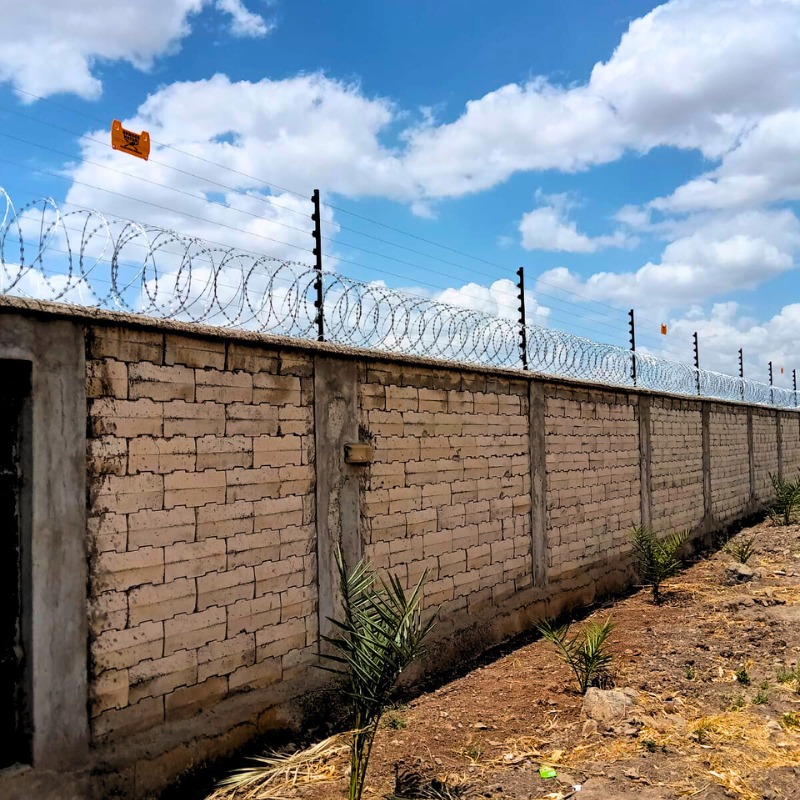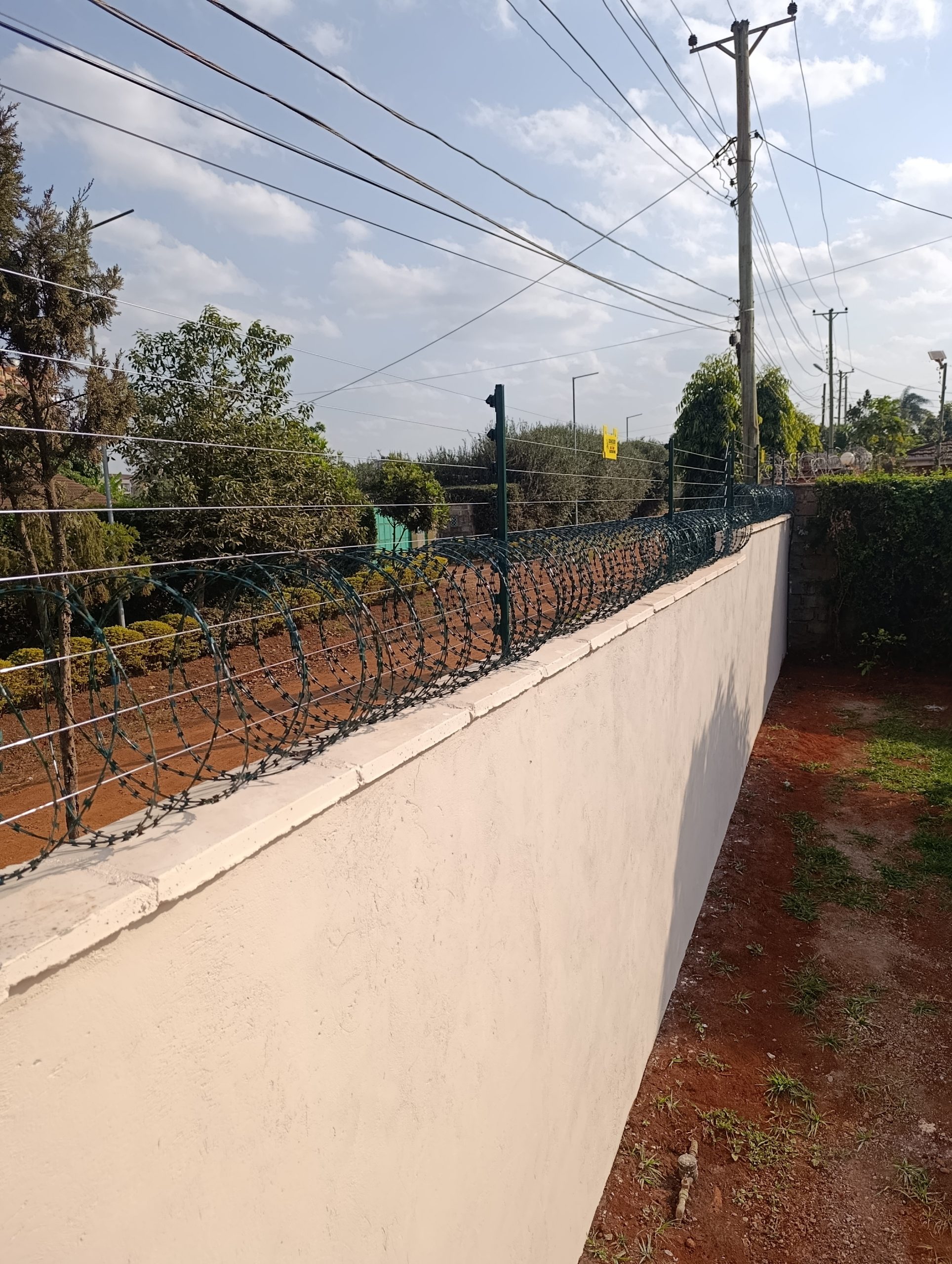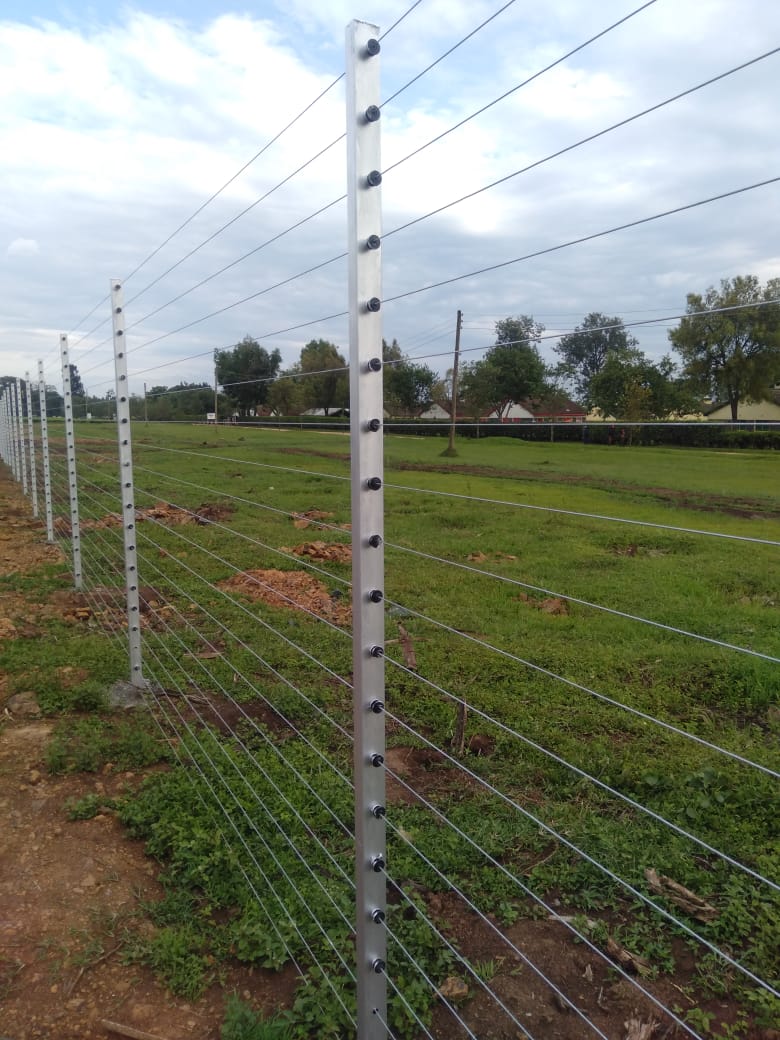Residential Fences
Top Wall Electric Fences
These are the most common in Kenyan towns and cities. They’re installed on top of perimeter walls to prevent intruders from climbing over. Typically, they consist of 4 to 12 strands of electric wire, powered by a mains or solar energizer. Many Nairobi estates use this setup to deter burglaries.

Residential Electric Fences
Razor Wire and Electric Fence Combinations
For extra security, many property owners combine razor wire coils with electric fences. Razor wire provides a physical barrier, while electric wires deliver a psychological and physical deterrent. This setup is commonly seen in commercial buildings and high-security areas.

Farm Fencing Solutions
Farm Electric Fences
4-28 strands of electric fencing wires
Kenya’s agricultural sector benefits massively from electric fencing. Farms use them to keep out intruders, control livestock movement, and protect crops from wildlife. For example, in Laikipia, electric fences are used to keep elephants away from farms, reducing human-wildlife conflict.

Portable Fencing Solutions in Kenya
Portable Electric Fences
These are temporary setups that can be moved easily. They’re especially useful for rotational grazing in dairy and beef farms or for securing temporary construction sites. Components include lightweight plastic posts, poliwires, and battery or solar energizers.

